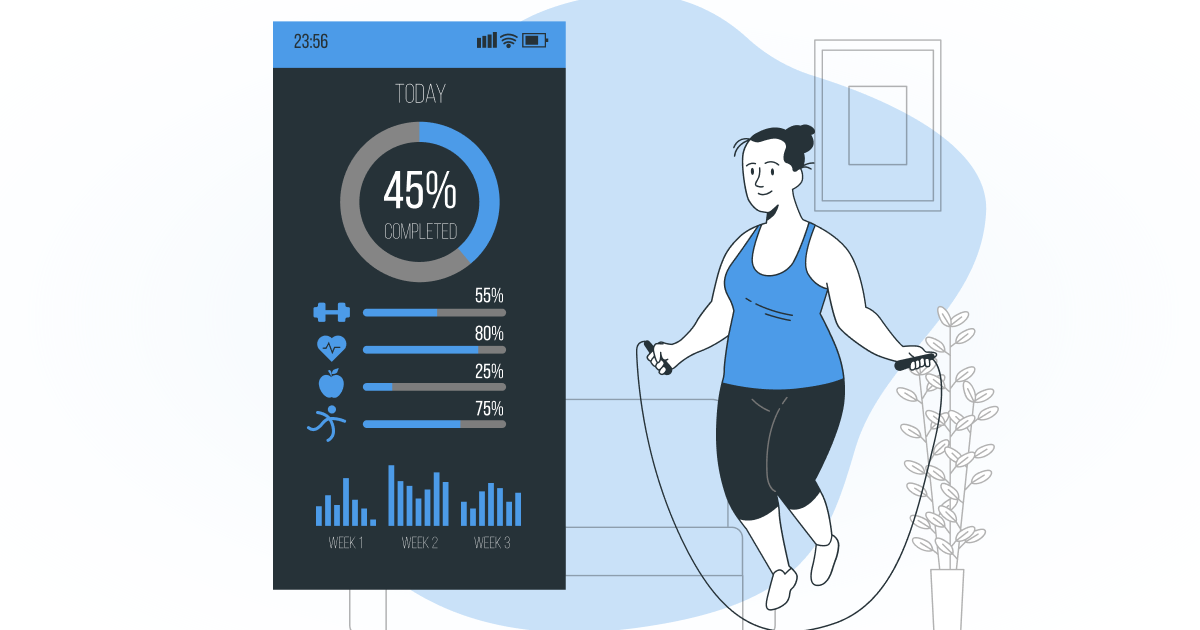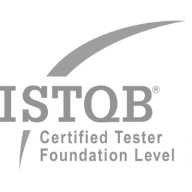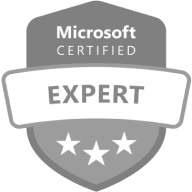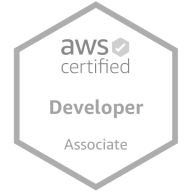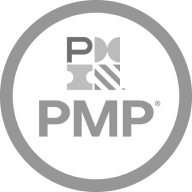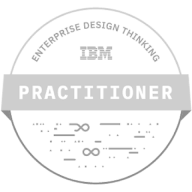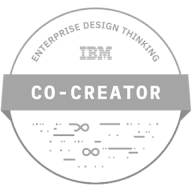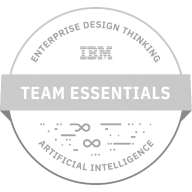
Guide of How to Вuild a Custom mHealth App: Types, Benefits, and Cost
Want to know more? — Subscribe
Healthcare software is growing more widespread and sophisticated. With an increasing number of users and mHealth apps, the mobile health market has reached $37B in 2019. After the pandemic boost, it is forecasted to skyrocket to over $53B by the end of 2021, according to Statista.
With that market growth, you need to satisfy users’ needs in more complex and personalized solution features to develop a successful health application. Besides, mobile or desktop medical applications are used both by patients and physicians in their medical practice. That means that healthcare app development can be a profitable monetization model.
Nonetheless, custom mHealth app development requires a special approach for the project. Get ready for a lot of preparations as well. Then you will be sure your solution is a perfect match for your customers. Here we'll discuss every single moment you should keep in mind.
Why Healthcare Mobile App Development Is One Of The Trends
The healthcare industry has undergone massive transformations as new technologies become more and more widespread. Still, their full potential is yet to be harnessed. Digitalization makes healthcare more efficient and affordable with medical app development growth. Therefore, healthcare institutions that want to keep up with the competition and make the life of both their employees and clients easier should pay their attention to mobile app development.
Let's look at a few of the main reasons why mobile app development for healthcare is one of the market trends.
Growth of Mobile Devices Users
In many countries, people can’t imagine their lives without smartphones. According to the GSMA Intelligence, there are 5.27 billion unique mobile phone users all over the world. Their number grew by 112 mln during the last twelve months. This growth is expected to continue, therefore, the number of potential medical apps’ users will increase.
Digitalization of Healthcare
The McKinsey report notes that Covid-19 has caused a rapid acceleration in telehealth usage. The number of mHealth app users in the U.S. rose from 11% in 2019 to 46%. It shows how deeply digital technology is entering the healthcare arena.
Ability to Reach New Users
In 2023, 295 million users in the United States assessed the internet via a mobile device. Approximately 83% of the U.S. population are mobile internet users. Hence, a mobile app provides your business with access to millions of customers. The healthcare providers won’t stay aside from this tendency.
Perspective On The Use of The Latest Technology
The healthcare industry is already using superior technologies, advancing the future. Early adopters, as usual, can benefit the most from it. The spectrum of technologies used for mHealth apps is wide. Here are the most prominent of them.
- Blockchain - Blockchain technology provides an opportunity to secure sensitive patient data. According to a C-level survey, 20% of top executives said new blockchain technology had been deployed in their healthcare organizations.
- Big Data - The use of large amounts of medical information depends on information technology. Big Data provides an opportunity to expand the use of electronic health records (EHRs). Also, Big Data is helping to provide analytics.
- Artificial Intelligence - AI will bring even more major discoveries, especially in the area of self-exams. It also unveils opportunities for speech recognition in virtual visits to record data in health records.
- Telehealth - As stated in Technology, Media, and Telecommunications Predictions 2021 by Deloitte: “According to one US analysis, only 0.2% of the medical claims filed in March 2019 were telehealth-related; in March 2020, that number had risen to 7.5%. Two-thirds of health professionals surveyed in a pre-COVID-19 2020 survey said that “top accelerators [for virtual health adoption] included overcoming regulatory barriers such as licensing restrictions and restrictions on allowing for site-neutral payments, along with implementing payment methods that reward better health outcomes.”
Types Of Healthcare Apps
Before we dig deep into all the technologies and trends on the mHealth app development process, let’s look over a few common types of medical applications designed for different purposes and use cases:
Software for Patient Data Management
These might include EHR, database software for doctors, and centralized systems to monitor hospital patients. That medical software is designed to collect the information about visits to the doctor, making it accessible via specialized networks. The doctors can find it instantly and finetune your treatment plans or share the data with their colleagues.
Care Management Software
This category covers patient portals, doctor appointment booking software, apps for communication with doctors, and Telemedicine apps. These sorts of apps allow patients to book appointments online and cancel them in one click.
Software for Patient Analysis and Patient-Generated Data
These would be for remote patients’ health monitoring systems. Wearable devices and apps would also fall into this category. Remote patient monitoring is one way that doctors can keep track of their patients after hospitalizations or keep a close eye on people with a high risk of health conditions.
Wearable devices like heart or blood pressure monitors can instantly alert a doctor if a patient needs to be readmitted to the hospital. The software can help to prevent severe health issues and even save lives by analysing data from those devices.
Hospital Software
This type of software includes prescription apps and medical billing software that automate many routine tasks for medical professionals. With this sort of medical tech solution, you can instantly receive a bill that considers any co-pays afforded to you by your healthcare provider. Besides, the hospital software may also help with scheduling patients’ treatment.
Here is a quick data recap on the most used mHealth applications types in the USA for the last 5 years.
Healthcare Apps Features And Technologies
We've discussed key types of medical apps. Now let's turn to the in-demand technologies for healthcare. Hence, if you plan to create mobile healthcare apps for patients, you should be aware of these varieties of emerging tech.
#1. Cloud Technologies
The main benefit of using such technologies is a decrease in cost. Record-sharing becomes easier and backend operations become automated as well. On top of it, the creation and maintenance of healthcare software is easier when a tremendous amount of patient information can be readily accessed via the cloud.
#2. AI/ML in Healthcare
AI-driven apps help doctors in treatment prescription and decision-making learning in previous cases. Also, predictive analytics is how artificial intelligence helps in this area. In the future, this technology will make it possible to diagnose diseases at an earlier stage.
#3. Video Conferencing importance in healthcare
Healthcare video conferencing features allow doctors to consult online. According to Technology, Media, and Telecommunications Predictions 2021 by Deloitte, “In the five years between 2014 and 2019, overall internet usage in the United States rose six percentage points, but internet usage for people over 65 rose 16 percentage points. Although not all senior Americans were connected in 2019, based on the growth rate in penetration and the pandemic, likely over three out of four were by mid-2020, which is likely a critical mass for enabling widespread medical video visits among the 65-plus population.”
Telemedicine apps are especially helpful if the patient has mobility issues or needs urgent consultations. Doctors can also consult with each other over long distances. That is particularly useful if the doctors live in different cities or even different countries, and the patient under discussion has unusual or perplexing symptoms. Telemedicine became especially relevant for us amid the Covid-19 pandemic when medical care was out of reach for many people.
Read also: Cost of Telemedicine App For Startups
#4. IoT applications in Healthcare
The Internet of Things is useful in healthcare when it comes to monitoring patients’ health records and tracking medical equipment in real-time. With the help of IoT devices, often named 'smart homes doctor devices,' physicians can receive a continuous information flow over the patients’ health.
IoT Devices provide:
- Remote monitoring of a patient's health status;
- Outpatient tracking of patients;
- Remote diagnosis and disease prevention;
- Ability to connect medical devices
IoT technologies can help in monitoring the state of medical equipment as wheelchairs are and oxygen pumps, defibrillators, nebulizers, and others. In such a way, IoT sensors monitor timely and convenient scheduling of maintenance and prevent unexpected equipment failure.
Wearable sensors are used to track such important indicators as heart rate, blood pressure, and body temperature. Low-power Bluetooth allows you to use the sensor to measure your heart rate for as long as possible. The wireless upper arm blood pressure tonometer can transmit the patient's blood pressure data to a server. Temperature sensors collect information and transmit it wirelessly to the handheld port.
The introduction of IoT technology can improve the availability of preventive mHealth services and make medical care more efficient. IoT-based health care has great potential to increase the efficiency of the health care system and improve patient health.
#5. Blockchain for Healthcare
Applying blockchain tech into healthcare can improve the way patients share and store their EHRs by providing secure mechanisms for sharing information across the healthcare industry. The technology ensures the security and safety of transmitting personal data through a decentralized network.
Sharing mhealth data is an important step toward improving the quality of healthcare services. An EHR is a digitized structure of patient health data created and maintained throughout a patient's lifetime and is typically stored and shared among health care providers. And it is a blockchain that will enable data security and simplify the transfer process.
#6. Big Data Usage
According to McKinsey research, using big data with AI and ML can allow the healthcare and pharma software providers to save approximately $100 billion annually only through automation of data processing.
Healthcare institutions accumulate tons of data. For instance, an Electronic Health Record (EHR) may include all of the key administrative clinical data relevant to that person's care, including demographics, progress notes, medications. To put all that information to a good use, healthcare providers require Big Data technologies.
Big Data is also crucial for public health. For instance, it can be used to identify trends to stop an emerging health crisis. The specific health data of a population can be monitored through Big Data processing methods so that epidemics can be contained, costs can be lowered, and doctors can see what their peers are doing to combat specific threats. Flatiron Health in New York can serve as an example. They are using billions of cancer patient data points to gain new insight and enhance research methods, with the eventual goal of curing this deadly disease.
Moreover, Big Data can save money. According to McKinsey research, using big data with AI and ML can allow the healthcare and pharma software providers to save approximately $100 billion annually only through automation of data processing.
Compliances To Consider In Health App Development
Understanding basic legal requirements is mandatory when collecting someone's personal information. mHealth app developers must follow the laws governing the security and privacy of a patient's medical data. Such breaches of security in healthcare can cause serious problems, both reputational and financial.
Several laws regulate the privacy of personal information in different legislations. Let's take a look at the most important ones for mobile app developers.
HIPAA
It is U.S. legislation that ensures the privacy and security of personal health information. Every year, the law becomes more and more relevant, given the numerous data leaks and hacks of medical databases.
To comply with the HIPAA, all covered entities must do the following when developing the medical app:
- Ensure the confidentiality, integrity, and availability of all protected electronic health information.
- Safeguard against anticipated threats to the security of the information.
- Protect against anticipated, impermissible uses or disclosures.
- Certify compliance by their workforce.
GDPR
General Data Protection Regulation aims to give citizens control over their personal data and simplify the regulatory framework for international economic relations by unifying the regulation within the EU. Healthcare providers are subject to stricter rules for collecting, processing, and storing personal data.
There are three types of personal data that are directly related to health care:
- Health data. These are any facts that relate to the physical or mental health of the user. Such information is considered confidential and protected under the GDPR.
- Genetics information. The results of laboratory tests and any facts that may reveal details of the patient's physiology.
- Biometric data. Refers to data related to a person's physical or behavioral characteristics. Such information is considered personal information under the GDPR because it can be used to identify a specific person (e.g., facial images, fingerprints).
Keep this information in mind when processing and storing data in mobile medical apps.
PIPEDA
The Personal Information Protection and Electronic Documents Act sets the ground rules for how private-sector organizations collect, use, and disclose personal information in the course of for-profit, commercial activities across Canada.
The PIPEDA law classifies personal information as any information that collects the following data about each individual:
- Name, age, financial data, ID number;
- Ethnicity, nationality, or race;
- DNA;
- Blood type;
- Marital status;
- Employment, education, and medical records;
- Driver’s license, social insurance number;
- Credit history and loan files.
Mhealth App Development Process: Step-by-step
Now, you’re aware of some of the most prevalent forms of technologies used for healthcare coming to the forefront for mHealth apps. But what about the technical process of these endeavors? There are certain rules in app development, and these rules will apply to the healthcare industry just as they would to any other.
Solving a Problem and Finding Your Target Audience
When you are designing your medical solution, you know what its purpose is going to be.
With medical apps, is the intention to allow the patient to communicate with a doctor without going to the hospital? Is the purpose to allow the patient to schedule appointments online? Is the goal of easing a patient’s monitoring of their cholesterol level or heart rate during workouts? Will they be using the app to pay a hospital bill?
Tip: At the discovery you need to address the problem that entices the user to adopt the software. That will help you to set up the app in a way that is as intuitive as possible, so that a person of any skill level will have no trouble using it. Creating an MVP can be the solution to launching your product. Outline your goals after the research, and move on to the development phase.
Overview Risks and Security Issues
As your app is about to hit the market, you'll have to pay close attention to the state regulations concerning medical software. Besides, data breaches in healthcare are not something unheard of, so the users need to be absolutely sure that their data is safe. It's hard to find the data more personal or sensitive than medical information.
Note that the electronic medical record systems require special security measures. The EMR is in the spotlight of various overseeing bodies, such as HIPAA.
Defining a Tech Stack and Features
Selecting the tech stack that you are going to use for medical software development is vital. The right set of this will allow your team to build a medical app, with all needed features and functionalities for mHealth app to make it helpful for patients and doctors. The wrong choice in this area could mean that your medical solution is doomed to failure from the beginning.
Sensitive medical information may consist of correspondence between the patient and physician, video chats, or data collected from a wearable medical device. To enable the development of a medical application, you need to take advantage of some technologies. For example, the list of databases that you can use in mhealth is the following:
- MySQL
- Oracle
- PostgreSQL
- Memcached
- MongoDB.
Monetization Models for Healthcare Apps
There is also the issue of how your app is going to be profitable. If you are coming out with an app that is ostensibly free, then how are you going to make any money off of it? As a for-profit company, there are many setups that you could implement that could solve this issue. Monetize your app with paid online visits or chats, implement a referral model with pharmacies or provide patients with useful tips by enabling subscriptions.
Cost of Mhealth App Development
As per the Research 2 Guidance data, the mobile health app development costs approximately $425,000 to develop from scratch to release conception to launch, according to a survey of 2,400 stakeholders in companies that do such development.
More complex medical apps are probably going to cost more than that. Meanwhile, Statista noted that there were 53,054 mobile healthcare apps on the Google Play market in Q1 2021, which means that competition is high enough, but there are still a lot of uncovered demands.
Tip: the best advice before starting your mHealth app development and not to waste your money is to make precise research on whether it will be in demand.
The price depends mainly on how complex a project you want to create - a minimum viable product or a completely finished solution. Here are the main stages of healthcare app development and their cost.
Discovery – It covers the initial analysis of the market, audience, and competitors. The average cost of the stage is approximately $10,000.
Specification requirements – A detailed SRS should mitigate the stages of medical mobile app development. Project managers, product developers, designers, and others involved in the development process will interact better on their way to completing the task of creating the product. Cost – $10,000 – $40,000.
Engineering and design – creating a visual representation of the app before the actual app coding. This stage will cost up to $30,000.
Development – the app concept and type influence the cost of an app during the development stage. More features you want means the app will cost more.
Testing – testing app function and quality. The average cost of the stage is $10,000 – $25,000
Ongoing support – a long phase of application support, as well as the development of updates. The cost depends on how long you plan to maintain this project.
Hence, if you have some idea on the mHealth app that came to your mind but still are unsure about it, use our free quote offer to get a personalized estimation on your project.
Read Also: Marketing strategies for medical apps
| Name of the development stage | The estimated cost |
|---|---|
|
analytics and research |
$5,000 – $20,000 |
|
specification requirements |
$10,000 – $40,000 |
|
engineering and design |
$15,000 – $30,000 |
|
development |
$25,000 – $50,000 |
|
testing |
$10,000 – $25,000 |
|
ongoing support |
$5,000 – $10,000 |

|
|
Softermii Experience In Custom Mhealth App Development
How to develop a healthcare app?
Creating a successful healthcare app requires a reputable software development company with extensive experience in this sphere. Softermii has completed a number of complex projects for its clients in healthcare. Here are some of the cases in our portfolio:
- HIPAA Video app — a new web-based communications and video conferencing application. It includes all necessary features for the doctor and patient to manage their interactions. Our developer team paid special attention to encoder implementations, browser support, and effective echo cancellation, creating a supreme video-streaming solution.
- Medrealtime — a platform, facilitating better access to healthcare from anywhere anytime. It provides patients with the opportunity to choose physicians depending on their skills, experience, and patients' reviews.
- My Health Explained — a web and mobile healthcare platform, focused on personalized diabetes programs. It allows users to access health records and track the patient's progress. On top of it, the platform offers a lot of educational materials on diabetes. More than 11,000 people with diabetes have already used it, praising the app's speed, interface, and quality technical support.
- The Locum App — a staffing platform for pharmacies and pharmacists. Our client wanted to make the recruitment process faster and simpler. A new optimized and automated recruiting app we designed specifically for the pharmaceutical industry helps to achieve that objective.
Read also: How Much Does Pharmaceutical App Development Cost?
Note that you can book a personalized meeting with the Softermii specialist and discuss your project to develop a custom mHealth app.
Post-Pandemic Reality Opens New Doors for mHealth
The rapid spread of the Covid-19 virus has given a new impetus to the development of mobile medical apps. The increased popularity of apps accelerates the number of healthcare solutions developed. The latest technologies, such as artificial intelligence, Big Data, IoT, and others, are being used in development. The use of these technologies opens up new ways to develop applications and increases the number of tasks they can solve.
Main reasons why developing medical apps became a new trend:
- Growth of mobile device users
- Simplicity of EHR
- More efficient resource allocation resources for health care stuff
- Better analysis of medical information from wearable devices.
A software development company should spell out a clear plan for developing your mobile app. Ideally, your app can be monetized.
Furthermore, the most important thing is to understand the basics of the legislation that relates to healthcare.
The key regulators are:
- HIPPA
- GDPR
- PIPEDA
Learn these rules before you start developing a medical app. It is important to know how to store, handle, and use patients' personal information.
If you have an idea, then we at Softermii are ready to help make it happen. A team of experienced healthcare developers will implement your project and create a mobile app. Softermii is an experienced healthcare app development company. Many successfully launched products for the medical industry prove it.
Let’s develop a mobile healthcare app that increases the quality of life of millions and makes your job easier.
Frequently Asked Questions
Here are some popular healthcare apps types, which you can use as a model:
- Medical apps for healthcare management
- Apps for the EHR
- Services for telemedicine
- Checker for the symptoms
- Remote health monitoring
The cost of development depends on:
- The complexity of your idea
- The technology that will be used in the development
- Which platforms the application is designed for
- What payment methods will be present
- The usability of the application
- The level of reliability of the developer
Before choosing the developer, pay attention to:
- The implemented cases
- The cost of development
- Analysis of competitors
- Ranking among development companies
- Deadlines
In addition, you can look for reviews and make a final decision based on them.
Leakage of personal medical information is a problem that can ruin your company's reputation and cause financial losses. Study the current legislation and be guided by the rules on the protection of patients' data.
Here are some main benefits of medical apps:
- Quick diagnosis
- Creating patient community
- Online chat
- Easy access to medical data
- Tracking the health status of patients
- Medical appointment scheduling
- Push notifications and medication reminders
How about to rate this article?
188 ratings • Avg 4.5 / 5
Written by:










